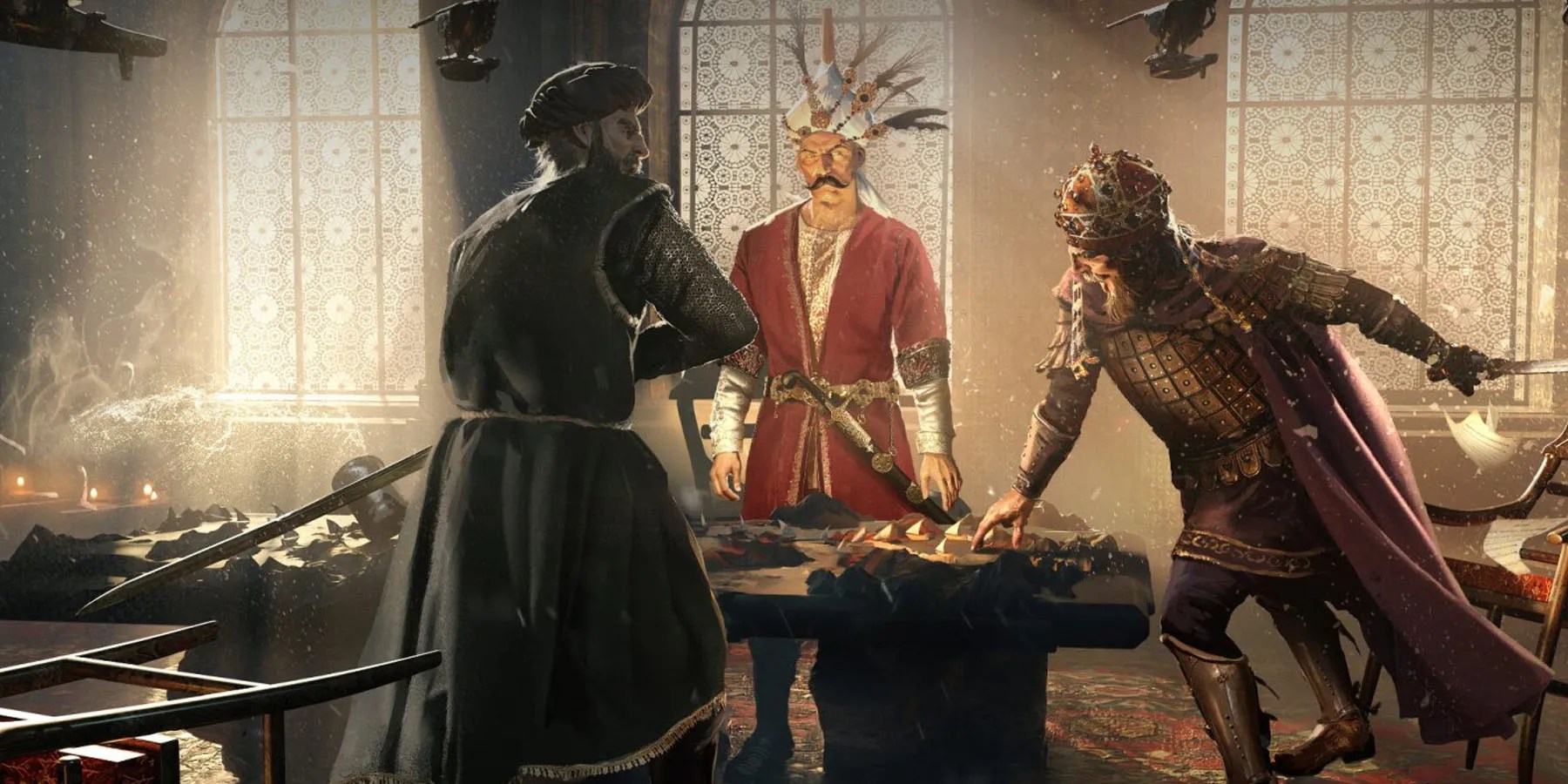Summary
When players begin theirEuropa Universalis 4session in the year 1444, they may notice that the world is just beginning toenter the Age of Exploration.This era in humanity’s history positions a player’s chosen nation as a potential leader in momentous events, with the growth of global trade and commerce also exposing different countries to new technologies and ideologies. Among the crucial concepts that players should take note of in nation-building is theirGovernment Type, as this actively affects how their nation responds to various activities around them.
Whileplayers have the option to changetheir Government Type, it might help them to first understand which are the most ideal governance systems that exist in the game. Although a player’s Government Type of choice should indeed be largely based on their nation’s objectives, some systems of governance seem to be ahead of the rest with the right implementation.

Starting With Extreme Handicaps
Effects
-100% Reform Progress Growth +0.5 Monthly Reform Progress -2 Diplomatic Relations -50% Institution Spread +400% Provicne Warscore Cost -30% Land Force Limit +20% Development Cost
Native Tribe Mechanics
Being a grand strategy title set in the beginning stages of the Age of Discovery and Age of Exploration,gameplay inEuropa Universalis 4isn’t particularly accessible for theNative TribeGovernment System. While capable of traveling from one province to the next, a Native Tribe has the potential of Grazing the land they occupy and damaging it should they stay there for too long, with the game encouraging them to Settle Down or fulfill Migration requirements to become a full-fledged state.
Despite their inherent advantages, playing a Native Tribe positions players with the freshest start available to them. When positioned properly, players can start dominating the New World via forming or joining a Native Federation before settling down and converting into any of the Government Types that players see as the most suitable for their progress. With Native Tribes being smaller in scale, players have less to worry about in terms of grander-scale missions and objectives.

Legitimacy
Considered a “vanilla” form of government for most grand strategy titles set in historical periods, the available sub-types for aMonarchyinEuropa Universalis 4generally provide more openings for diverse gameplay courtesy ofstrong diplomatic options. On top of curating the right heirs for the nation, being able to forge Personal Unions and Royal Marriages can become easier methods of securing allies and claims to other nations.
With theRights of ManDLC, new options such as Abdication and Disinheritance can provide players with more variety in how they want their Monarchies to prosper. More unique mechanics related to a Monarchy’s expansion, such as China’s Mandate of Heaven or Europe’s Holy Roman Empire, can incentivize conquest runs.

+15% Burghers/Vaishyas Influence -40 Maximum Absolutism
Unique Mechanics
Republican Tradition Cultural Sufferance Plutocratic Ideas (but no Aristocratic Ideas) Elections
Monarch Power forms the crux of aplayer’s capacity to lead a nation in theirEuropa Universalis 4playthrough, with the more people-centricRepublicrewarding the implementation of Republican Tradition with better MP control. Tailor-fitting the Republic to maximize MP generation for nations is precisely why players prefer using this Government Type, especially if they’re gunning for specific developments for much faster nation-building.

With this in mind, players can secure early-game advantages when choosing the right Republic to begin their playthroughs. Milan’s Ambrosian Republic leverages the nation’s economy at the onset, while the strong infantry of the Dithmarschen’s Peasants Republic can help players capitalize on conquests.
+10% Clergy Loyalty Equilibrium +5% Clergy Influence +10% Brahmins Influence
Divine Ideas (but no Aristocratic Ideas) Generals Cannot Be Rulers, Heirs Devotion
A nation can only be as excellent as its leader of choice, but with aTheocracyin aplayer’sEuropa Universalis 4playthrough, that isn’t always the case. Considering how Theocracy practically transforms leadership creation into RNG, players can’t always get reliable Monarch Points throughout their playthrough. However, while this caveat can indeed dampen overall development, players could potentially form a Theocracy around the right reforms.

Despite potentially having mediocre rulers with little control over their state, Theocracy has some extremely efficient bonuses locked behind reforms. For instance, Monastic Breweries can transform a nation into an export powerhouse with Grains and Wine Production, while Integration of the Sohei can improve Infantry and Mercenary capabilities. Lastly, capitalizing on the Holy Horde can incentivize fast-tracked conquests with stronger Cavalry and faster Movement Speed.
Horde Unity (for Steppe Nomads)
At first glance, theTribal GovernmentinEuropa Universalis 4gameplayplaces players at a disadvantage compared to more organized Republics and Monarchies, but it’s within their Reforms that the Tribal Government can shine in terms of gameplay. Just transitioning into the Steppe Nomads to become a Horde can transform a Tribal Government into a powerhouse, with the addition of National Manpower and Land Force Limit with faster Looting and Movement Speed emphasizing extremely aggressive plays.
Courtesy of Razing, a Horde has access to one of the most efficient methods of expansion in the game. While Razing a province lowers its overall development, its provision of Administrative, Diplomatic, and Military Power alongside Horde Unity and the area’s remaining Loot make the action rather favorable when expanding into other territories. A key disadvantage to a Horde government is its policies shoe-horning players into conquest plays, which can become an inconvenience to players enjoying the diplomatic aspect of the game.
